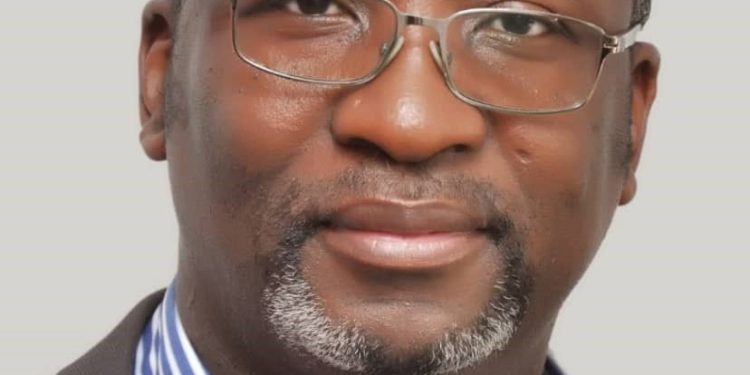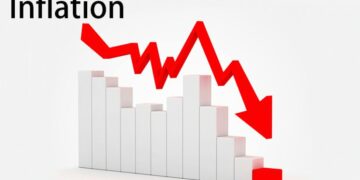Tough but Right: Will BoG’s Currency Crackdown & NPL Clean-Up Fix the Economy or Freeze Growth?
The Bank of Ghana (BoG) has launched an ambitious set of reforms aimed at stabilizing the economy: tighter currency controls, stricter non-performing loan (NPL) rules, insider-lending bans, and the public listing of willful defaulters. The critical question is whether these measures signal sound financial governance or risk crossing into regulatory overreach that could stifle growth.
In practice, the BoG’s new currency rules establish the Ghana Cedi as the sole legal tender for domestic transactions. Businesses and individuals cannot price, sell, or accept payments in US dollars or any other foreign currency for everyday goods and services, including school fees, car sales, house rentals, hotel accommodation, airline tickets, retail shopping, or online sales. Only licensed banks and BoG-approved institutions may handle foreign currency, and foreign clients may be invoiced in dollars only if the proceeds are deposited into a Foreign Exchange Account (FEA) at a licensed bank.
Exchange rates must align with market rates and BoG’s published reference rates, and unauthorized FX transactions outside these channels are illegal under the Foreign Exchange Act 2006 (Act 723). Additionally, the cross-border payments for legitimate imports, exports, tuition, and other external obligations remain allowed through banks, subject to regulatory limits. In practice it means businesses must transact in cedis unless serving authorized foreign customers, individuals should avoid informal dollar dealings, and banks remain the only legal FX channels. BoG’s objective is to clear, protect the cedi, curb black-market FX trading, and maintain financial system integrity while allowing controlled, legal forex flows.
The BoG’s again revised August 2025 notice on NPLs requires all banks, microfinance institutions, and non-bank financial institutions to manage bad loans rigorously. The reforms expand the definition of loans to include off-balance-sheet exposures such as guarantees and clarify related-party lending. Microfinance institutions must maintain NPLs below 5%, while other institutions target 10%, with a one-year compliance window to allow structured loan restructuring and avoid abrupt credit freezes. Banks must submit reduction plans within 30 days of breaching limits, write off fully provisioned or unrecoverable loans using prescribed formats, and follow strict rules on loans to directors, shareholders, or family members.
Willful defaulters, including borrowers who relocate without settling debts, will be publicly listed twice yearly, strengthening credit discipline. Annual reporting now includes both cumulative and current-year loan write-offs, and standardized templates ensure transparency. The practical impact of these rules are that banks can clean their books orderly, SMEs benefit from structured loan restructuring, investor and depositor confidence will improve, and the credit culture across Ghana’s financial system is strengthened.
So is FX Controls a temporary shield or long-term risk? Considering the BoG limits large FX withdrawals, tightening AML/KYC checks, prioritizing essential imports, and incentivizing diaspora remittances. These are classic short-term stabilization tools deployed when reserves are under stress. But there is a fine line as prolonged restrictions can distort markets, widen black-market premiums, and discourage foreign investment. For example, Nigeria’s 2015–2020 experience offers a cautionary tale. FX restrictions on 41 import items stabilized reserves in the short term but fueled inflation, created parallel markets, and scared off investors. Ghana risks repeating these mistakes if FX controls become permanent rather than a temporary firewall. With NPLs approaching 20% in some banks, stricter enforcement is warranted.
Yet, aggressive application risks shrinking credit, especially for SMEs and exporters. Kenya’s 2016–2019 experience demonstrates the dangers: strict lending caps combined with NPL rules led to a collapse in SME credit until reforms were relaxed. The lesson is clear: financial discipline must be paired with mechanisms to maintain credit flow. India in the 1990s provides a useful example. FX rationing was temporary, banks were recapitalized, bad loans were offloaded to Asset Reconstruction Companies, and controls were gradually relaxed once stability returned. For Ghana, this suggests treating FX controls as temporary, pairing NPL clean-up with credit guarantees and SME financing windows, and phasing out restrictions as reserves strengthen.
So what is the Interaction with Credit Markets. The success of NPL reforms depends on their interaction with broader credit markets. Positive outcomes include cleaner bank balance sheets, stronger investor confidence, and improved credit allocation. Risks include credit contraction, higher interest rates, and growth in shadow finance. The post-1997 Indonesia avoided credit freezes by creating Asset Management Companies to absorb toxic loans; Ghana could adopt a similar approach. The goal is to restructure bad loans without undermining lending to healthy businesses.
All these dovetail the mandatory currency declarations aim to improve transparency and combat money laundering, terrorism financing, and illicit capital flight. But poor implementation could create excessive bureaucracy. Low thresholds or inefficient processes could delay SMEs, push trade into informal channels, and harm the domestic economy. Lessons from the EU, Nigeria, and Kenya show that digital platforms, phased compliance, and trader training help balance oversight with ease of trade. Ghana should digitize filings, adopt risk-based thresholds, and focus enforcement on high-risk sectors to avoid unintended disruption.
What about the issues of Insider Lending and Willful Defaulters. This is the most important for me in the whole policy. BoG’s crackdown on insider lending and publication of willful defaulters could dramatically improve governance and reshape Ghana’s credit culture if implemented transparently. In post-2017 reforms give BoG credibility, but enforcement must be shielded from political interference. Over the next 12–18 months, effectiveness will be reflected in the stabilization of the cedi, reduction of NPL ratios toward 15–16%, sustained private sector credit growth of 5–8%, visible enforcement actions, and positive investor sentiment including rising FDI and moderating T-bill yields. The public naming of defaulters introduces reputational pressure, which in Ghana’s culture can be a strong deterrent.
However, safeguards against wrongful listings and politicization are essential to avoid undermining confidence in the banking system. But the question comes how do we then balance Discipline and Growth? Personally, the BoG’s reforms are bold and necessary, targeting long-standing weaknesses in currency management and banking governance. If implemented with discipline, transparency, and supportive growth policies such as easing FX bottlenecks for exporters, creating SME credit guarantees, and providing credible dispute-resolution channels they could restore confidence and strengthen the economy. Yet overly rigid enforcement risks trading short-term stability for long-term stagnation. FX controls that last too long, excessive red tape in AML compliance, or aggressive NPL enforcement without supporting SME finance could choke legitimate trade and investment.
I recommend that the Bank of Ghana engage experts in monitoring and evaluation to assess the impact of these policies on a weekly or monthly basis. This would allow for timely adjustments either easing or tightening rules as needed because applying the same approach uniformly across short, medium, and long-term horizons risks freezing the entire economy. Consequently, Ghana’s financial future hinges on a delicate balance. The BoG stands at a critical juncture, its policies can either instill discipline while fostering growth or enforce stability at the cost of economic dynamism.
Success will not be measured by the toughness of rules on paper but by their impact on a stable cedi, healthier banks, and a credit system that continues to finance real economic activity. Ghana’s revise regulatory drive of tightening currency controls, enforcing AML rules, cracking down on NPLs, and disciplining insider lending reflects determination to restore financial discipline and reset the entire financial sector and the economy. The challenge is to implement these rules in a calibrated, transparent, and growth-friendly manner. Done correctly, BoG’s actions could lay the foundation for a stronger, more resilient economy; done poorly, they risk freezing growth while creating an illusion of stability.
About Author
Dr. Bernard Tetteh-Dumanya is a distinguished Ghanaian financial economist, entrepreneur, finance and development strategist, and academic leader with over two decades of experience in investment management, institutional banking, and large-scale project financing across Ghana and West Africa. As CEO of TD Afrika Grupp Limited, he has built and scaled a multinational consultancy delivering innovative solutions in finance, environmental economics, and agricultural development, while leading capital-raising initiatives for multi-million-dollar infrastructure and entrepreneurial projects. He has held senior roles in asset management, banking, and training institutions, including SIC Financial Services, UBA Ghana, and EMPRETEC Ghana Foundation, successfully optimizing financial operations, restructuring organizations, and empowering SMEs. Academically, he has served as Vice-President and Dean at multiple universities, overseeing program development, accreditation, and institutional growth. Dr. Tetteh-Dumanya is also a published author on topics ranging from portfolio management to economic policy, with a proven record of advancing sustainable agriculture, fostering public-private partnerships, and mentoring emerging business leaders.








